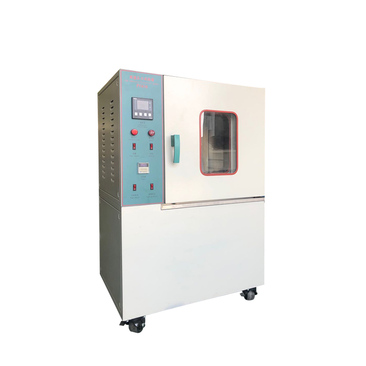Manufacturing Solutions for Conductor Resistance Testing Fixtures and Equipment
The Importance of Conductor Resistance Fixture in Electrical Testing
Introduction
In the world of electrical engineering, the reliability and efficiency of electrical components hinge on the accurate measurement of their electrical properties. One essential aspect of this measurement process is the determination of the conductor resistance. To achieve accurate results, engineers and technicians employ specialized tools known as conductor resistance fixtures. This article explores the significance of conductor resistance fixture factories, detailing their role in the manufacturing process and the overall importance of these devices in ensuring high-quality electrical systems.
Understanding Conductor Resistance
Conductor resistance refers to the opposition that conductors present to the flow of electric current. It is a critical parameter in electrical circuits, influencing everything from power losses to thermal performance. High resistance can lead to inefficient energy usage, overheating, and potential circuit failure, making accurate measurement vital. Conductors with lower resistance are generally preferred as they allow for better current flow and lower energy losses.
Conductor Resistance Fixtures Definition and Function
Conductor resistance fixtures are specialized equipment designed to measure the resistance of various conductors accurately. These fixtures are often used in laboratories and manufacturing plants to ensure the quality of electrical components. By providing a stable and controlled environment, these fixtures enable technicians to perform precise measurements without external interference.
The primary function of a conductor resistance fixture is to connect the conductor under test with a current source and a voltmeter. By measuring the voltage drop across the conductor while a known current flows through it, the resistance can be calculated using Ohm's law (R = V/I). This straightforward method ensures that the measurements are reliable and repeatable, which is crucial in maintaining quality standards in electrical manufacturing and testing.
The Role of Conductor Resistance Fixture Factories
Conductor resistance fixture factories play a pivotal role in the production and innovation of these measurement devices. They are responsible for designing, engineering, and manufacturing high-quality fixtures that meet various industry standards. These factories invest in research and development to enhance the accuracy, durability, and ease of use of their products.
conductor resistance fixture factory

Factories dedicated to producing conductor resistance fixtures often implement stringent quality control measures. Each fixture is rigorously tested for accuracy and reliability, ensuring that it can yield precise results in real-world applications. This focus on quality assures customers that they are investing in instruments that will protect their operations and enhance their product reliability.
2. Customization and Innovation
As the electrical industry evolves, so too do the demands placed on conductor resistance fixtures. Factories are increasingly embracing customization, allowing clients to order fixtures tailored to specific applications or environments. Such adaptability ensures that the fixtures can meet unique testing requirements across various sectors, from telecommunications to renewable energy.
3. Integration with Modern Technology
In today’s fast-paced technological landscape, incorporating advanced technology into conductor resistance fixtures is imperative. Factories are now exploring the integration of digital interfaces, cloud connectivity, and advanced data analysis tools. This enables users to not only measure resistance more effectively but also to manage and analyze the data collected during testing.
4. Sustainability and Environmental Responsibility
With growing concerns about sustainability, conductor resistance fixture factories are also focusing on eco-friendly practices. This includes using sustainable materials in the manufacturing process and ensuring that the fixtures are energy-efficient. By adopting environmentally responsible practices, these factories contribute to the broader effort within the electrical industry to reduce its carbon footprint.
Conclusion
The significance of conductor resistance fixture factories cannot be overstated. They are a linchpin in the machinery of modern electrical testing and manufacturing. By producing high-quality, reliable, and innovative measuring devices, these factories ensure that electrical components meet stringent safety and performance standards. As the world increasingly relies on efficient electrical systems, the importance of accurate conductor resistance measurement will only grow, underscoring the vital role that conductor resistance fixture factories play in shaping the future of electrical engineering and technology.
-
Why the Conductor Resistance Constant Temperature Measurement Machine Redefines Precision
NewsJun.20,2025
-
Reliable Testing Starts Here: Why the High Insulation Resistance Measuring Instrument Is a Must-Have
NewsJun.20,2025
-
Flexible Cable Flexing Test Equipment: The Precision Standard for Cable Durability and Performance Testing
NewsJun.20,2025
-
Digital Measurement Projector: Precision Visualization for Modern Manufacturing
NewsJun.20,2025
-
Computer Control Electronic Tensile Tester: Precision and Power for the Modern Metal Industry
NewsJun.20,2025
-
Cable Spark Tester: Your Ultimate Insulation Assurance for Wire and Cable Testing
NewsJun.20,2025
 Copyright © 2025 Hebei Fangyuan Instrument & Equipment Co.,Ltd. All Rights Reserved. Sitemap | Privacy Policy
Copyright © 2025 Hebei Fangyuan Instrument & Equipment Co.,Ltd. All Rights Reserved. Sitemap | Privacy Policy
